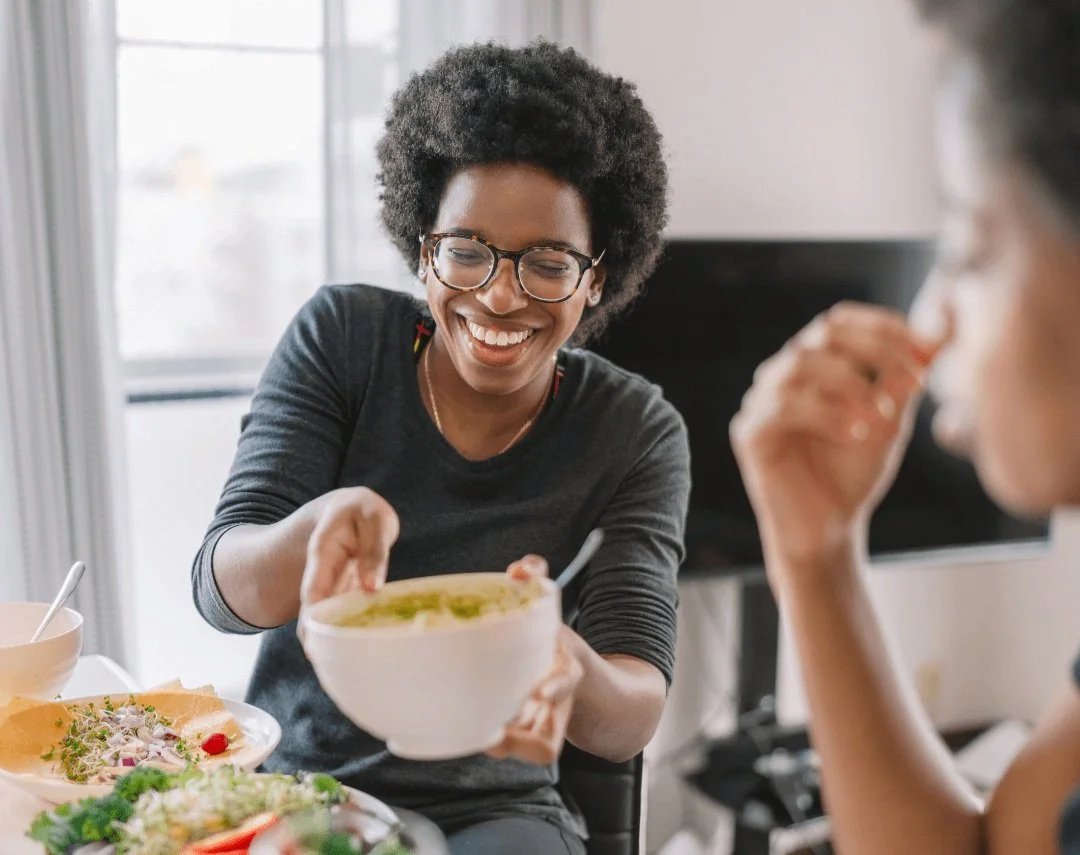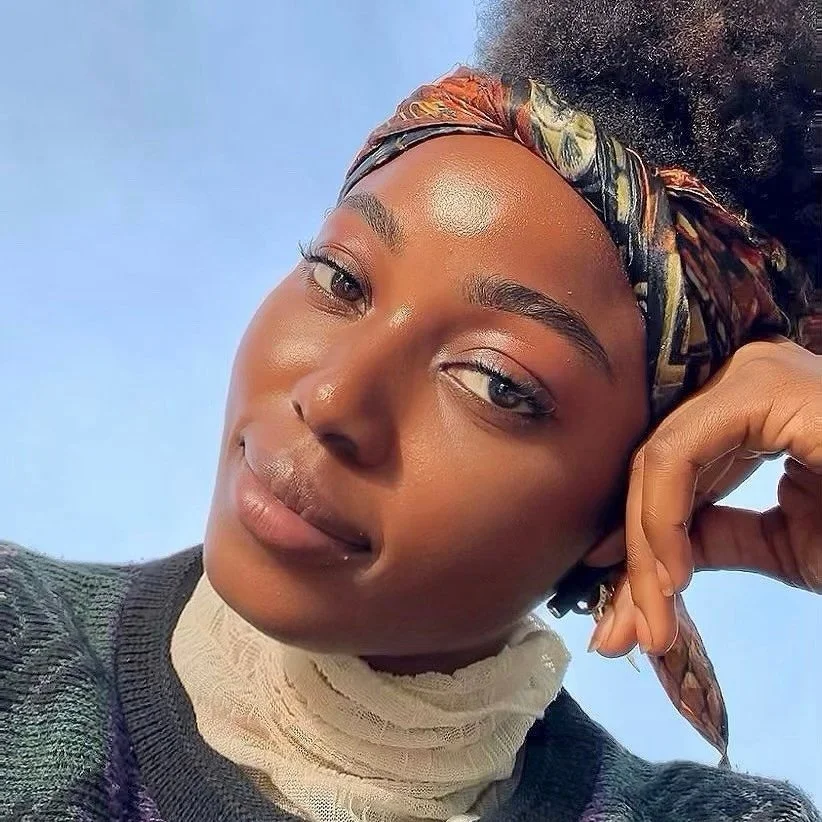Afro-Veganism: On culture, Identity, and veganism
“Since I became vegan, I have shared my meal plans, product reviews and personal hacks with many Nigerians who are looking to make this lifestyle change. Knowing that I provide a sense of representation for my community is important to me. ”
Written by Ene Ijato
As an African living in Africa and being vegan, my experience is unique in many ways and tied to this identity. The identity of being Afro-Vegan. There is a lot of intersection between culture and identity, and as an Afro-Vegan, I am intricately aware of these intersections and how they influence my reality.
Veganism is a concept that many debate its purpose, accessibility and increasing popularity even though it continues to face a lot of pushback and criticism.
In the Black community, a lot of the negative view of veganism has centered around it being alien to what we now know as Black culture. This has led many Black vegans to dig into our cultural histories to find a connection with our ancestors.
To examine what veganism means to the growing population of Black vegans, we must look back at history and tribes that even momentarily or selectively chose to practice this lifestyle.
In Africa, many tribes across the continent have traditional meals that are heavily plant-based and practiced lifestyles that were grounded in creating harmony with the earth. Many Africans reject the notion that veganism is alien to their cultures and state that it is a return to their roots.
Nicola Kagoro, a Zimbabwean-based chef upon discovering veganism and learning about it in her cultural history decided to start a community-based movement that incorporated protecting wildlife.
Veganism has a very rich history in African culture, especially through food and our relationship with the earth, and many Black vegans are reaching into this history to identify with it and find belonging.
In America, Black veganism, a term coined and brought to prominence by sisters Syl and Aph Ko is regarded as a sociopolitical philosophy that establishes a link between racism and the lasting effects of slavery, and animal exploitation.
This movement seeks to galvanize Black people toward a vegan lifestyle as a display of resistance to various social justice issues and a call for change.
The term Afro-vegan is a specific call to the cultural identity that exists with being vegan and Black, and the intersectionality this identity presents.
Afro-veganism has so far been used to simply define the sheer identity of being vegan and Black. This is relevant because there are various reasons that people are vegan and various ways they choose to be vegan. This includes ethical, health, religious, and environmental reasons. Being able to comfortably own the identity of being Black and vegan for just what it is, for many persons of African descent, is what it means to be Afro-Vegan.
So far the term has been used by Bryant Terry a renowned vegan chef, food justice activist, and author in his acclaimed cookbook titled Afro-Vegan: Farm-Fresh African, Caribbean, and Southern Flavors Remixed [A Cookbook] where he incorporated history, culture, and health into his narrative of food to present a fresh and significant perspective. A term that Amirah Mercer, a prominent vegan activist, remarked: "disrupted everything the mainstream had ever shown me about veganism." This is what it aims to do, to show representation and explore the various histories and realities of vegans of African ancestry in the continent and the diaspora.
Afro-Veganism is veganism for Black people and by Black people. It challenges the views of mainstream veganism around the world and infuses the realities of Black people and our culture into this lifestyle choice.
For me, Afro-Veganism is about being Black and Vegan in Nigeria. It is about the rich cultural histories of my ancestors through a vegan lens. It is about reexamining my roots and adopting practices that align. It is also about the scarcity of vegan options in local restaurants, the pricey boxes of plant-based milk, and the intentionality that goes into making a daily decision to feed my body with mindfulness.
It is about examining systems of oppression and being outspoken about them while being aware of the realities that surround this lifestyle choice.
The Afro-Vegan experience is not monolithic, it is diverse and important for representation.
The population of Black vegans in America is the fastest-growing demographic in the country and is projected to keep increasing. Organizations like the Afro-Vegan Society promote events like Veguary to create widespread awareness of the movement during Black History Month.
The African and Middle-East vegan market was valued at 240.96 million in 2020 and is anticipated to grow at a compound annual growth rate (CAGR) of 6.01 percent over the following five years (2021 - 2026), reportedly attributed to the pandemic and rising health awareness.
Data Bridge Market Research's analysis predicts the West African plant-based product market will develop at a CAGR of 5.00 percent from 2021 to 2028 and reach $520,571.51.
This study identifies the market-driving factors as increased vegan and lactose intolerant populations in West Africa, changing dietary habits among millennials and an increase in the number of plant-based product launches in the region. The higher cost of plant-based goods compared to traditional goods hinders the market’s slow expansion. However, there is still a lack of consumer knowledge of plant-based products and limited availability of such products in the region.
The Dream Team needs your help to continue amplifying the voices and stories of Black youth and young adults through our contributing writer program. Can you contribute to support?
What this shows is that the population of Afro-Vegans continues to grow around the world, yet without major interconnected networks of education and community: I chose to be Vegan as a Black person living in a community with no other Vegans I knew of.
My relationship with food was how I became aware of veganism. Being able to sit with how I felt about food in connection with my values and beliefs led me to adopt a vegan lifestyle. It also led me to explore various aspects of my culture and how they have nurtured and continue to nurture members of my community. It was important to me that I document this journey and inspire others in my community looking to make this transition, to do so too knowing they were not alone and could have my support.
Since I became vegan, I have shared my meal plans, product reviews and personal hacks with many Nigerians who are looking to make this lifestyle change. Knowing that I provide a sense of representation for my community is important to me.
I have learned about various local vegan Nigerian meals and made vegan versions of popular delicacies and have been inspired by many Black vegan content creators.
Exploring various vegan fashion brands in the continent as well as local hand-made products such as woven and crocheted bags and shoes made, and plant-based textiles.
Hair care in my culture has been deeply rooted in organic plant-based products and being vegan exposed me to these healthy cultural haircare practices that align with my vegan lifestyle. The use of shea butter, and palm kernel oil is predominant in my culture for haircare and requires little effort to maintain a routine, which I find to be sustainable.
This process of learning and practicing fulfills me and motivates me to constantly reaffirm my choice to be vegan.
Afro-Veganism is on the rise and answering the question of what it means to be Black and vegan.
Celebrating our culture and identity is something we have always been proud of. For me, this celebration demonstrates that I do not need anyone’s permission to live as fully and authentically as I am. It celebrates the triumph of my heritage over subjugation and gives me the space to tell my story.
Ene Ijato (she/her) is a storyteller, using various creative mediums to tell minority stories. She currently works at a nonprofit dedicated to minority health and rights and uses storytelling to influence positive behavioral and policy changes.



